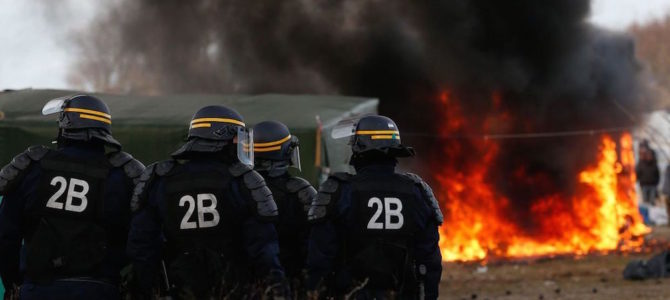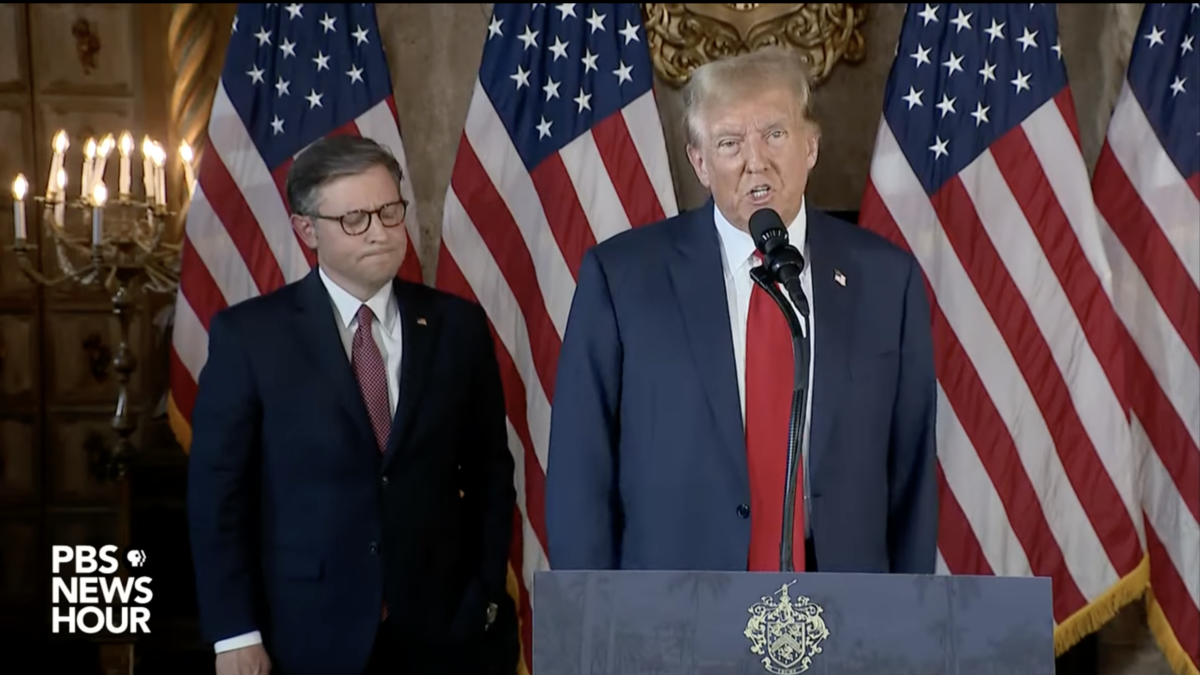
On Sunday, German Chancellor Angela Merkel said she would not limit the number of refugees coming into the country. “On the issue of an upper limit, my position is clear,” Merkel said. “I won’t accept one.”
Setting aside the electoral implications of Merkel’s statement, which defied her party’s long-term coalition partner just two months before federal elections, it perfectly captured the refusal of European leaders to face the migrant crisis head-on—a refusal that in turn epitomizes the slow suicide of European civilization.
President Trump’s Warsaw speech earlier this month provoked predictable cries of racism and xenophobia from a mainstream media worried that even the term “western civilization” was a dog whistle for alt-right nationalists. Implicit in such criticism is the dubious notion that western values are not really western, that people of all cultures and religions desire more or less the same thing.
His critics say Trump was playing on white Europeans’ fears that Muslim migrants won’t adopt western values and won’t assimilate into European society, and therefore pose a direct threat to western civilization. But there’s another group that Trump no doubt had in mind, a group that also rejects western civilization and has little interest in defending or preserving it: European elites.
European Elites Refuse to Defend Women
Without splitting hairs over what we mean by “western civilization,” let’s stipulate that, at minimum, it encompasses things like freedom of speech and religion, equal rights for both sexes, and democratic rule of law. One could argue that these are elements of western civilization most people in Muslim-majority countries don’t share with the denizens of Europe. But let’s set that aside and ask an equally pressing question: do European political leaders believe in them? Do their policies reflect a desire to defend and preserve these principles?
Increasingly, the answer is no. Take women’s rights, for example. In Europe as in America, the equality of the sexes has for decades been held as an immutable fact. But Europe is even more militant about its feminism than America. For Europeans, the very idea of a housewife is backwards and oppressive; mothers are expected to work and send their children to state-subsidized child care, not opt out of the workforce to raise a family. This is the official policy of the EU, which has entire commissions dedicated to ensuring more women enter the workforce.
For Muslim immigrants to Europe, who come from societies in which women are generally subordinate to men, this comes as a shock. Yet for a long time Europe insisted that newcomers adopt western attitudes regarding women’s rights and sexual freedom. As Christopher Caldwell has noted, this was the only non-negotiable demand Europe made of its immigrants. The European ruling class might have been willing to look the other way on free speech and denounce as fascist anyone who worries about Islam and terrorism, but on feminism there was no room for negotiation: “It is the litmus test according to which assimilation—and even membership in the national community—is judged. It is the one area where Europeans retain both a deep suspicion of Muslim ways and a confidence in their own institutions that is free of self-doubt.”
At least, that’s how it used to be. Caldwell wrote those lines in 2009, long before the migrant crisis coincided with a spike in sexual assaults perpetrated mostly by Muslim men. The mass sexual assault in Cologne and other German cities on New Year’s Eve last year made headlines—not just because of the brazen nature of the attacks but also because German authorities tried to suppress information about them. It was only after rumors and eyewitness accounts began cropping up on social media that authorities acknowledged what had happened.
The most infamous case of this kind is perhaps the Rotherham child sex exploitation ring, which first came to light in 2010. An independent inquiry found in 2014 that British men of Pakistani origin had groomed at least 1,400 underage girls for sexual exploitation over the previous 16 years. The girls, some as young as 12, were variously abducted, raped, tortured, and forced into prostitution. Even more shocking than the details of the sex ring is why it persisted for so long: police and city officials knew what was happening but didn’t take action for fear of being accused of racism.
You would think this would be enough for the government to take action and protect the women and girls being preyed upon by these men, but you’d be wrong. Two years after the inquiry, an investigation by the Daily Express found that nothing had changed; the exploitation was still happening “on an industrial scale.”
The Rotherham case predated the migrant crisis, but there are signs that the ongoing influx of Middle Easterners and North Africans—more migrants have already arrived in Europe this year than in all of 2016—is making the problem much worse.
Last week, Cheryl Benard, who spent years working with refugees all over the world, wrote about the growing incidence of sexual assault committed by refugees against local women. The vast majority of such assaults are reportedly being committed by young Afghan men, sometimes in broad daylight. In some cases, passersby have intervened to prevent women from being raped by multiple assailants. As in the Rotherham and Cologne cases, the fact of the assaults was disturbing, but equally disturbing was the reaction of the media and government officials. Writes Benard:
It took a while for the pattern to be recognized because, until recently, western European media deliberately refrained from identifying an assailant’s refugee or asylum status, or his country of origin. Only when the correlation became so dramatic that it was itself newsworthy did this policy change. At that point, it became clear that the authorities had known about, and for political reasons had deliberately covered up, large-scale incidences of sexual assault by migrants.
The Migrant Crisis Exposes a Morally Exhausted Europe
The inability or unwillingness of Muslim migrant men to conform to the sexual mores of Europe is of course just one of the problems the migrant crisis has brought to the continent. But the knee-jerk reaction of European elites to either ignore or deny these sorts of problems speaks volumes about their commitment to western civilization.
In his new book, “The Strange Death of Europe,” British journalist Douglas Murray documents his travels across Europe reporting on the migrant crisis, and concludes that Europe is so morally exhausted that it rejects its own right to exist. “Europe today has little desire to reproduce itself, fight for itself or even take its own side in an argument,” writes Murray. “Those in power seem persuaded that it would not matter if the people and culture of Europe were lost to the world.”
According to Murray, the migrant crisis perfectly encapsulates this exhaustion. In some ways, it’s a case of competing virtues: the desire to be virtuous to the rest of the world is competing against justice for the people of Europe. Increasingly, virtue is winning out over justice because a misguided commitment to hollow notions of “respect,” “tolerance,” and “diversity” has supplanted the deep roots of European civilization. The problem, argues Murray, is that European values have “become so wide as to become meaninglessly shallow.”
As the crisis deepens, it’s become obvious that Europe’s leaders are now so ambivalent about the survival of their own civilization they’re unable to speak of the bad things that have come, and will keep coming, with mass migration.









